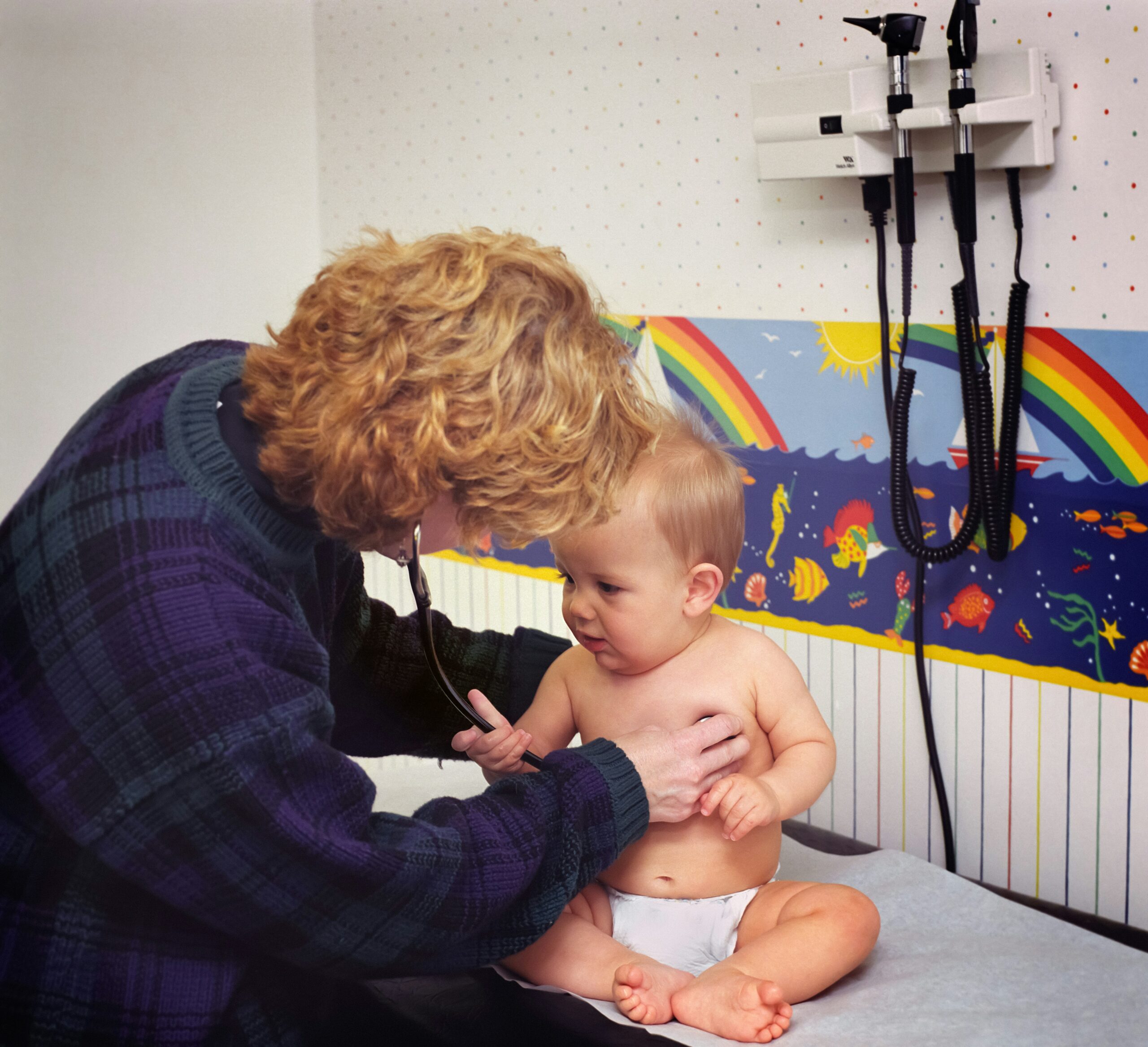Worrying about a child’s health seems almost as innate to parenting as loving them. The sound of an unexpected cough at night, unease about a lost appetite, the endless questions about growth charts—these anxieties are familiar territory for parents. Enter the pediatrician: a steady reference point, uniquely trained to steward your child’s physical, emotional, and psychological development. It’s not just about managing illness; it’s about building a foundation for lifelong health, one well-timed checkup, one calm reassurance, and one carefully chosen vaccine at a time. Wondering how a pediatrician is different from a family doctor or what qualities actually define a great pediatrician? You’re not alone—and the answers are richer and more nuanced than you might expect.
Understanding the Role: Why Pediatricians Are Unique
A pediatrician is so much more than just a “doctor for kids.” Consider their area of expertise: growth and development, from the first breaths of newborn life to the sometimes stormy seas of adolescence. Relying on years of medical training tailored exclusively to children and young people, the pediatrician possesses a well-honed ability to interpret subtle cues—whether it’s a missed milestone in motor skills, a speech delay, or emerging behavioral issues that may spark parental worry.
Short question, big answer: Why choose a pediatrician instead of a general practitioner? Simply put, children aren’t small adults. The spectrum of diseases, the typical progress of symptoms, and the recommended interventions diverge sharply from adult medicine. Pediatricians skillfully blend clinical knowledge with preventive care—tracking head circumference, forecasting immunizations, tuning into both vocal and nonverbal cues that could reveal a health issue. This vigilance is not just clinical—it’s deeply humane.
Preventive Care: Monitoring Growth, Development, and Milestones
Children’s health is dynamic, and so is pediatric care. Visits begin soon after birth. Picture this: your infant is weighed and measured, reflexes are checked, subtle signs of congenital concerns are sought out. As your child grows, the pediatrician scrutinizes the trajectory—height, weight, and head growth—mapping them against global standards. Is your toddler’s speech progressing as expected? Are feeding and sleep problems making daily routines feel overwhelming? Pediatricians address these concerns calmly, providing actionable advice (‘try introducing new foods gradually’ or ‘here’s how to gently shape sleep routines’).
And for every parent anxious about milestones: “late” isn’t always “abnormal,” but the pediatrician’s sharp eye is trained to detect true deviations. When something persists—a stutter, a limp, unusual floppiness—the pediatrician orchestrates referrals and assessments. Screening for hearing, vision, neurodevelopmental status is part of this ongoing care—not a one-time event but a continuous, evolving process.
Family Doctor or Pediatrician? Drawing the Distinctions
A family doctor cares for all ages, yet a pediatrician brings concentrated expertise specific to the pediatric population. The length and depth of specialized pediatric residency shape how they respond to fevers in infants, growth faltering, or rare genetic conditions. General practitioners and pediatricians work in tandem but, when a child’s health strays from expected patterns, it’s the pediatrician who offers focused insight. Think of them as partners rather than competitors, collaborating for comprehensive, child-centered care.
Empathy and Communication: The Science with a Human Touch
What do parents hope their pediatrician will offer? Beyond medical expertise, it’s the art of listening without judgment, translating technical concepts into plain English, and genuinely partnering with the family. Pediatricians understand that children’s health does not exist in a vacuum; psychosocial factors—family structure, mental well-being, sleep habits—shape every recommendation. These professionals foster autonomy, inviting parents to ask questions like, “Is this rash concerning?” or “Are night terrors normal at this age?”
Consider, for example, the pediatrician’s approach to nutrition counseling: it’s practical, nuanced, and tailored. Do picky eaters need supplements? Are plant-based diets safe for teens? Instead of dictating, pediatricians empower, offering up-to-date data and encouraging shared decision-making.
Preventive Care: The Power of Vaccination and Early Screening
Immunizations sit at the heart of pediatric practice—an area that stirs questions and, sometimes, debate. The pediatrician becomes a trusted source for scientific facts. Why are vaccines spaced a certain way? What are the risks of delaying shots? Explaining the concept of ‘herd immunity’ or breaking down potential vaccine side-effects, pediatricians aim for clarity and reassurance. Preventive care isn’t limited to shots, though: it’s about early vision checks, dental hygiene advice, sports clearance, and so much more. A short question—“Is this safe for my child?”—may yield a nuanced, comprehensive reply.
Managing Illnesses: Acute, Chronic, and Everything In-Between
From a run-of-the-mill ear infection to the surprising diagnosis of juvenile diabetes, pediatricians rise to the challenge. Their role is not only diagnostic; they coordinate treatments, track progress, and orchestrate multidisciplinary support when more complex conditions arise. Imagine the difference: a cough that drags on in a toddler isn’t always ‘just a virus’—sometimes it signals asthma, allergy, or a need for additional evaluation. Pediatricians don’t just treat the symptoms; they seek the root, piecing together medical history, family background, and subtle shifts in behavior.
And then there’s the psychological side. Behavioral changes—sudden withdrawal, anxiety, mood swings—demand a sensitive, thorough response. Pediatricians may refer to a psychologist or psychiatrist while retaining a supportive presence for the family, a thread between medical and mental health domains.
Where Do Pediatricians Work? Care Settings and Accessibility
Where you meet your pediatrician shapes the rhythm of care. Private clinics allow for continuity, flexibility, and relationship-building. Hospitals offer emergency services, specialty evaluations, even intensive care for those rare but daunting scenarios. Maternity units carry out those delicate first newborn exams, while community health centers increase accessibility for families facing logistical or financial hurdles.
Innovation is reshaping these settings. Telemedicine now bridges distances—virtual consultations for chronic disease follow-up or routine questions reduce unnecessary travel. However, nothing replaces the hands-on assessment for babies or truly urgent needs, and pediatricians maintain a careful balance: remote support where appropriate, in-person care when needed.
Specialized Pediatric Care: When Expertise Runs Deep
Not every health concern ends with a single practitioner. Pediatric subspecialties—such as cardiology, pulmonology, endocrinology, and more—address rare or complex needs. A heart murmur prompts an echocardiogram; unexplained joint pain may lead to a rheumatology referral. The pediatrician becomes a coordinator, connecting families with the right experts at the right time, ensuring that care is coherent and information flows smoothly.
Psychiatry and behavioral pediatrics also merit special mention. With the rising prevalence of neurodevelopmental disorders—from autism spectrum disorders to ADHD—timely recognition and multidisciplinary follow-up are essential. Pediatricians keep one eye on these emerging concerns, guiding parents gently through the maze of assessment and therapy options.
Training and Professional Growth: The Pediatric Pathway
The journey to becoming a pediatrician is long and scientifically rigorous. Medical school lays the foundation; pediatric residency builds layer upon layer of child-specific knowledge—covering everything from neonatal resuscitation to adolescent mental health. Many proceed to additional board certification and even narrower subspecialization. Don’t overlook the role of research: pediatricians contribute to new treatment protocols, education, and public health initiatives, advocating for safe and equitable access to care.
Fostering Trust: Partnership at the Heart of Care
For every vaccination, checkup, or urgent phone call, trust sits at the core of the pediatrician-parent relationship. Transparency is fundamental—each concern is taken seriously, no question is dismissed. The child health record becomes a living document—growth curve, vaccinations, major illnesses—helping everyone involved keep track and plan ahead.
The pediatrician never works solo. Collaborations with speech therapists, occupational therapists, surgeons, and midwives create a mesh of support, ensuring no aspect of your child’s development slips through the cracks. Good coordination means safety, continuity, and—above all—a sense of security for your family.
Facing Modern Challenges: Trends and Innovations
Today, pediatricians navigate more than classic illnesses. There are new waves: allergies, obesity, rare diseases, increasingly complex chronic conditions, and evolving expectations from families who demand flexibility, better listening, and a preventive focus. With the development of digital health tools (think teleconsultation, online resources, interactive education), care is becoming more accessible and, sometimes, more personalized. Emerging therapies—like targeted genetic treatments—are reshaping possibilities. At the same time, pediatricians must make evidence-based decisions about complementary therapies, balancing scientific rigor with parental preferences, always prioritizing safety.
Pediatricians and Public Health: Beyond the Clinic
A pediatrician’s influence echoes across the wider community. Vaccination campaigns, educational outreach programs, injury prevention efforts—these activities shape safer environments for all children. Recognizing broader factors (nutrition, housing, social support), pediatricians connect families with valuable resources, fostering resilience far beyond the exam room.
Key Takeaways
- Pediatricians accompany each child from the first days of life through adolescence, providing individualized, science-based support for health, growth, and emotional well-being.
- Their expertise spans growth monitoring, developmental assessments, nutritional counseling, and disease management—integrating preventive strategies with responsive treatment.
- Regular consultations with a pediatrician mean early detection of potential health issues and immediate guidance, empowering parents to make informed and confident choices.
- The synergy between pediatric services—private clinics, hospitals, digital health, and specialized referrals—ensures comprehensive coverage for every scenario.
- Open, respectful communication builds trust, fosters autonomy, and provides a safety net for families navigating the twists and turns of parenting.
- Pediatricians are at the pivotal intersection of medical care, education, and public health, continually adapting to advances and family expectations.
- Resources and professionals are always available to support parents—whether the concern is minor or complex. For tailored advice and free child health questionnaires, download the Heloa app and access guidance designed for your family’s needs.
Questions Parents Ask
What age range do pediatricians treat?
Pediatricians generally care for children from birth through adolescence, often up to 18 years old. In some cases, they may continue to see young people into their early twenties, depending on individual needs and ongoing health concerns. Rassurez-vous, during the transition to adult care, pediatricians guide families and support each step, ensuring it fits the young person’s comfort and development.
Can pediatricians help with behavioral or emotional concerns?
Absolutely. In addition to physical health, pediatricians are trained to address behavioral and emotional issues, such as anxiety, sleep problems, mood changes, or difficulties at school. They take time to listen, provide reassurance, and, when necessary, collaborate with psychologists or counselors. This holistic approach supports both the child’s well-being and the family’s peace of mind.

Further reading:









